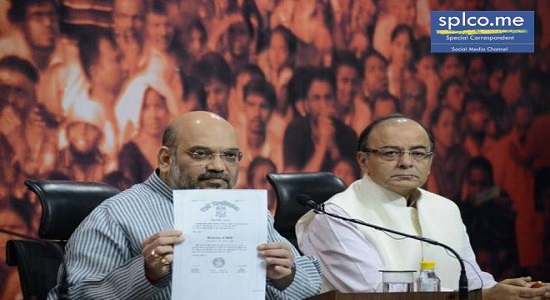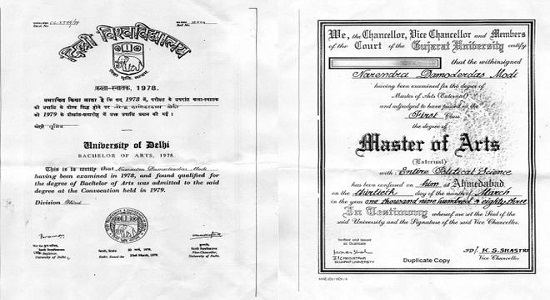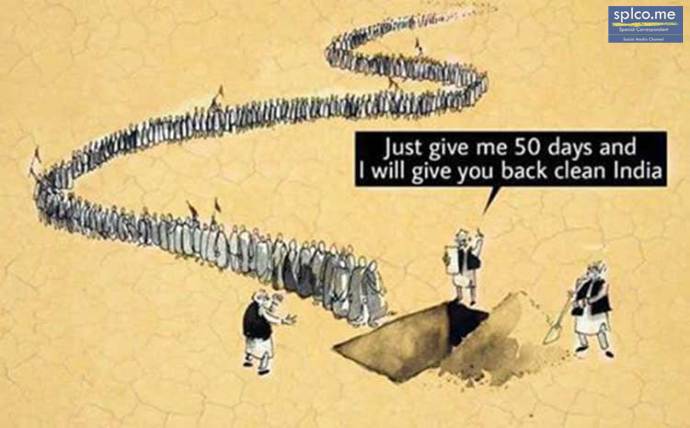The Delhi High Court has allowed the Right to Information activists to intervene in the matter pertaining to the information about students who graduated from the Delhi University in 1978, the year Prime Minister Narendra Modi is said to have completed his graduation.

The intervention was allowed by Justice Rajiv Shakder of the Delhi High Court. The plea filed by Anjali Bhardwaj, Nikhil Dey and Amrita Johri were opposed by the additional solicitor general, Tushar Mehta.
Mehta told the court that the activists from the National Campaign for People's Right to Information should not be allowed. This is a matter of grave public importance and any interpretation by the court in this regard would have serious ramifications on the RTI regime in the country.
But the RTI activists had contended that the Delhi University's challenge to the CIC order directing it to disclose the names of all students who graduated with a BA degree in 1978, was bad in law.
They had noted that while such information was readily provided by prominent foreign universities, Delhi University had also erred in citing various provisions of the RTI Act in trying to block the disclosure of information, which is over 20 years old, it was also reported.
Earlier in his order of December 21, 2016, central information commissioner M. Sridhar Acharyulu had allowed inspection of Delhi University’s 1978 BA degree records.
But the university then contended that disclosure of its 1978 university records would invade the privacy of students and that the information “has no relationship to any public activity or interest”.

Piqued by the stand of University then the CIC held that the university could not provide any evidence or explain how such information causes any “invasion of privacy”, and allowed for inspection of records.
Soon after CIC passed the order in the case, Acharyulu who been told to inspect was divested of the charge of the human resource development ministry.
Though the chief information commissioner later issued a notice allowing him to retain the power to intervene in HRD ministry matters, RTI activists have urged that the reasons behind the move, widely assumed to have been prompted by a nudge from outside the commission, be disclosed.
The issue had also kicked up a political storm as Aam Aadmi Party leader and Delhi chief minister Arvind Kejriwal wrote to the CIC alleging that the prime minister was influencing the departments concerned not to release details about his degrees.
Treating his letter as an RTI application, the CIC had then directed both Gujarat University (GU) and Delhi University to give Modi’s roll numbers so that they could find out the necessary details.
Later, both DU and GU confirmed what Modi had stated in his election affidavits. Copies of his degree certificates showed that he had completed his BA from Delhi University in 1978 with a third division and finished his MA in ‘Entire Political Science’ with a first division in 1983.
But the controversy did not end there. Soon after BJP leaders Amit Shah and Arun Jaitley triumphantly flashed Modi’s degrees at a press conference and blamed AAP for stooping to a new low, Team Kejriwal retaliated by pointing to discrepancies in the degrees.
AAP leader Ashutosh alleged that Modi’s name in the marksheets and the degree were different, and that names could be changed only through an affidavit. He demanded that the BJP produce the affidavit. He also pointed out that the final year mark sheet was awarded in 1977 while the degree stated that Modi graduated from DU in 1978.
The BJP responded by saying that Modi had failed his examinations in 1977 and had therefore taken the final year exams in 1978, the year the degree was awarded.
In Social media bloggers wondered if Modi studied in those years what about his repeated statements that he went underground during emergency era.
Being a underground fugitive during emergency period can one complete degree by attending the university raises again billion dollars question.














